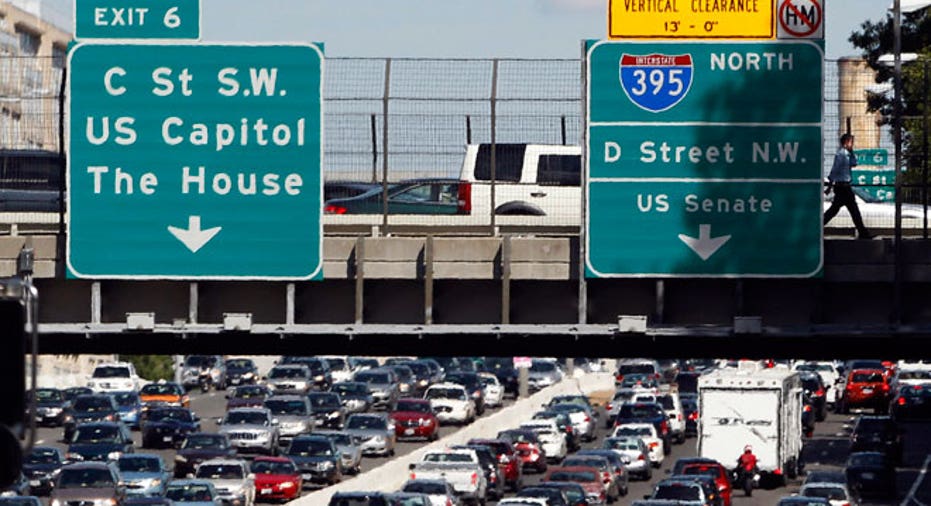Why a Generation Gave Up on Cars

Millennials are giving driving the cold shoulder, and experts aren't sure if it's just a phase they're going through.
"We can speculate. We just don't know yet," says Steven Polzin, director of mobility policy at the Center for Urban Transportation Research at the University of South Florida.
Drivers between the ages of 16 and 34 slashed their driving by nearly 25% between 2001 and 2009, according to the report, "Transportation and the New Generation: Why Young People are Driving Less and What it Means for Transportation Policy," by the Frontier Group and the U.S. PIRG Education Fund.
During that time, per-capita miles driven for that age group dropped from 10,300 to 7,900.
Plenty of factors are fueling the decline, including economic woes, high unemployment, steep gas prices, increased transportation alternatives and increased urbanization.
In comparison, for the population as a whole, the number of miles driven slid by 6% from 2004 to 2011, with the average American driving 9,455 miles, according to the Federal Highway Administration. (See "10 states where driving has plummeted.")
And it's not just the number of miles driven by younger Americans that have taken a hit. Teens and younger adults are forgoing driver's licenses as well.
A survey this summer by the AAA Foundation for Traffic Safety found that within the first year of being legally able to get a license, only 44% of teens had done so. Just 54% had a license before their 18th birthday.
In comparison, a Federal Highway Administration survey in 1990 found 70% of 17-year-olds and 77% of 18-year-olds had their driver's licenses.
It's not just the money
The top reason teens are skipping licensing is startling. The University of Michigan's Transportation Research Institute surveyed 618 people between the ages of 18 and 39 and found 37% of respondents were too busy to get a driver's license. About one-third said owning a car was too expensive and another third said they could get transportation from others. Respondents could choose more than one answer.
The top reason "wasn't something that was really on our radar," says Brandon Schoettle, the study's lead author.
In the past, "it was unheard of for people not to want to get their license," Schoettle says. The survey results "say to us this is just not high on their list of priorities."
The second and third most common answers didn't come as a surprise, he says. Many of those who don't drive get rides from parents, friends and spouses.
For those who don't have a license because of financial issues, "we think this may be largely to blame on the economic downturn," Schoettle says.
If the economy strengthens, "we think some of that effect might go away" he says, as younger people land jobs or get better jobs.
The survey also found 22% of respondents prefer to bike or walk and 17% prefer using public transportation.
Those in rural or suburban areas may be more inclined to eventually get a car and a license than those in urban areas. (Delaying licensure to a more mature age helps car insurance premiums somewhat, but all young drivers face a steep premium for their inexperience.)
Millennials, in particular, have helped fuel population growth in urban locations.
Polzin says many Millennials moved to urban areas after graduation, and many have delayed getting married, having children and buying a house.
Previous generations have often moved to the suburbs in search of back yards and better schools once the kids come, Polzin says. So the question with Millennials remains, "will they revert to more traditional behavior?"
Carless for now - but forever?
Florida native Jenny Todd gave up her car when she moved to Chicago last year. "Living in a city, it's more efficient to ride my bike everywhere."
It's also a major money saver. "People my age don't have loads of money," says Todd, who has an architecture degree but works as a barista.
Sinking hundreds of dollars each month into car payments and insurance "just doesn't seem worth it. Instead, I could put that toward housing or a vacation or more experiential things," Todd says.
In inclement weather the 26-year-old uses public transportation, and if she needs to make large purchases, she'll barter with friends who have cars -- making them dinner in exchange for a ride.
Alison Stuart, a Philadelphia elementary school teacher and part-time waitress, walks to work and bikes other places.
She also can make use of a car-sharing program that costs her $26 a day if she needs to run special errands. "It's more smart financially to pay that one time, than to pay for a car," and the gas, insurance and repairs that go with it.
Instead of buying a car, Stuart purchased a home two years ago. "I'd rather spend money on things where I see a return on investment."
The original article can be found at CarInsurance.com:Why a generation gave up on cars



















